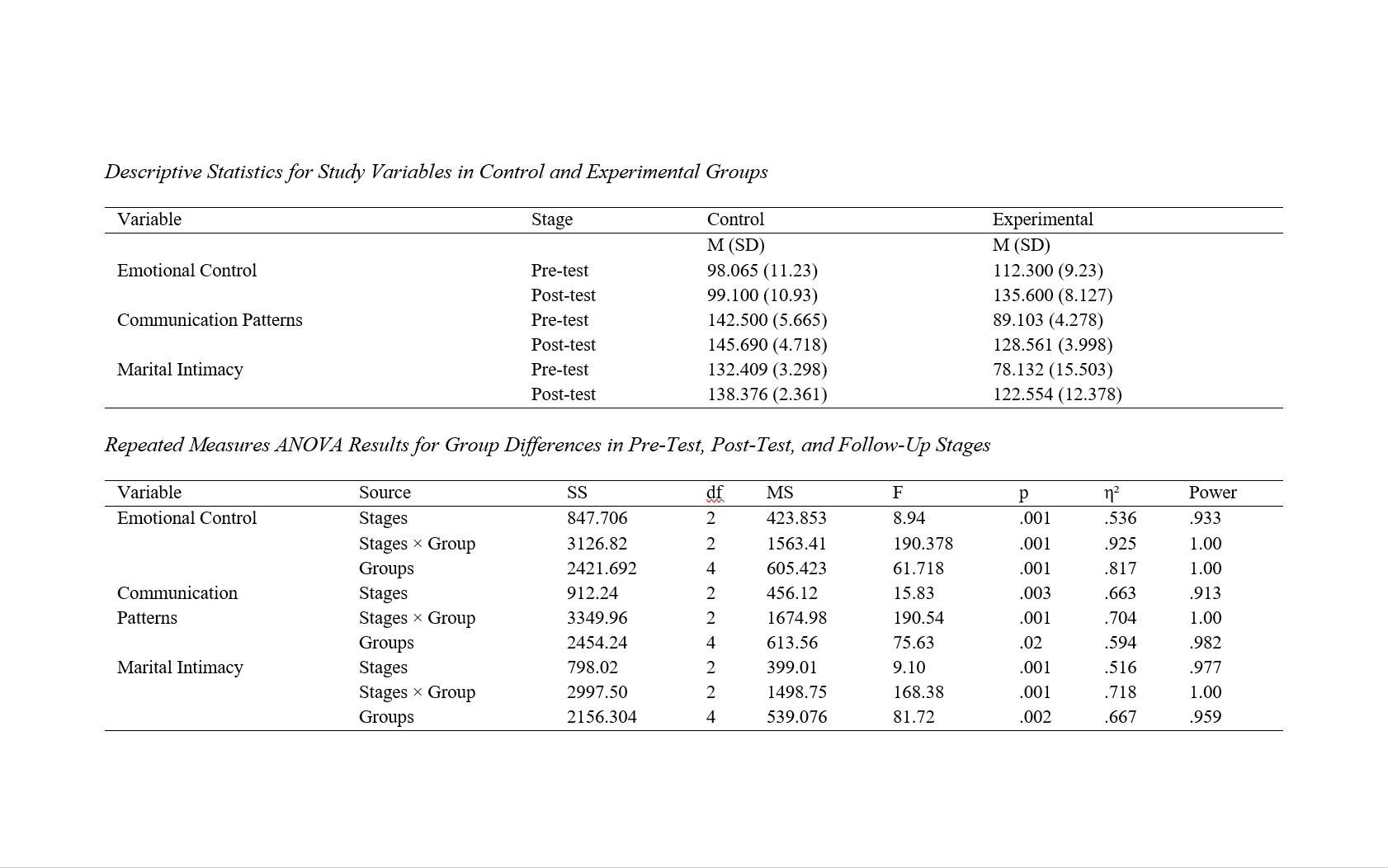Effectiveness of Dialectical Behavior Therapy on Emotional Control, Communication Patterns, and Marital Intimacy in Women with Marital Infidelity Experience
Keywords:
Marital Intimacy, Communication Patterns, Emotional Control, Dialectical Behavior TherapyAbstract
Objective: The present study aimed to investigate the effectiveness of Dialectical Behavior Therapy (DBT) on emotional control, communication patterns, and marital intimacy in women experiencing marital infidelity in the city of Isfahan.
Methods and Materials: The research method was quasi-experimental with a pre-test-post-test design including control and experimental groups. The statistical population of this research consisted of all women with marital infidelity experience who referred to counseling centers in Isfahan in 2023. The research sample comprised 45 women with marital infidelity experience, who were selected through convenience sampling and randomly assigned to two groups: the DBT experimental group and the emotion-focused therapy (EFT) group, as well as a control group. Data were collected using the Marital Infidelity Questionnaire by Yeniseri and Kokdemir (2006), the Emotion Regulation Scale by Williams, Chamless, and Aheratz (1997), the Communication Patterns Questionnaire by Christensen and Salovey (1984), the Marital Intimacy Questionnaire by Bagarozi (2001), and the Emotion Regulation Questionnaire by Gross and John (2003). Data analysis was conducted using univariate and multivariate covariance analysis.
Findings: The results indicated that Dialectical Behavior Therapy effectively improved emotional control, communication patterns, and marital intimacy in women.
Conclusion: The findings indicate that Dialectical Behavior Therapy (DBT) is effective in improving emotional control, communication patterns, and marital intimacy in women experiencing marital infidelity. The results support the use of DBT as a valuable intervention for enhancing psychological well-being and relationship satisfaction among affected individuals.
Downloads

Downloads
Additional Files
Published
Submitted
Revised
Accepted
Issue
Section
License
Copyright (c) 2024 Ali Badanfiroz (Author); Abbas Abolghasemi (Corresponding Author); Mahnaz Khosrojavid, Reza Soltani Shal (Author)

This work is licensed under a Creative Commons Attribution-NonCommercial 4.0 International License.









